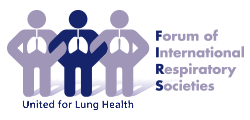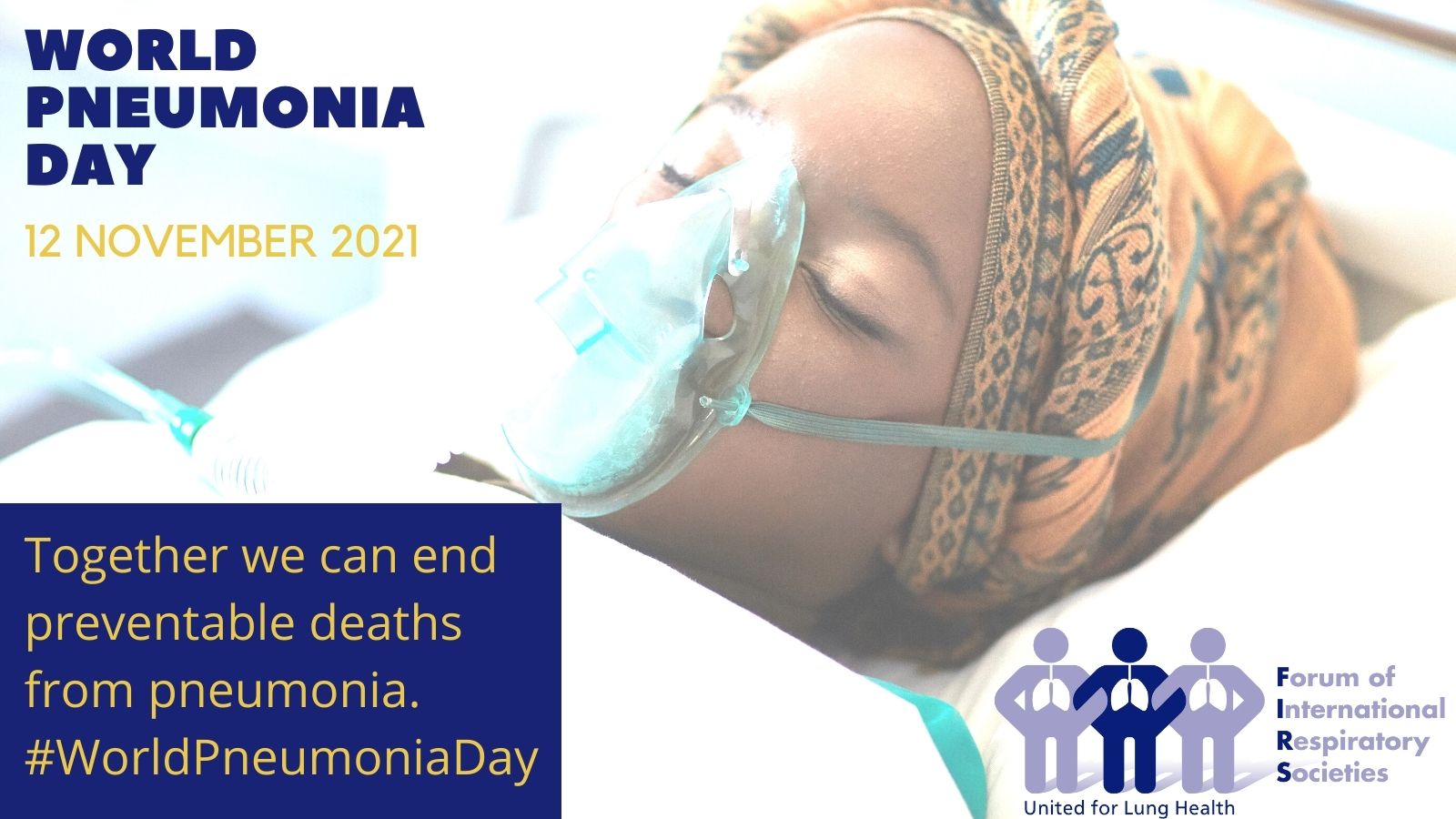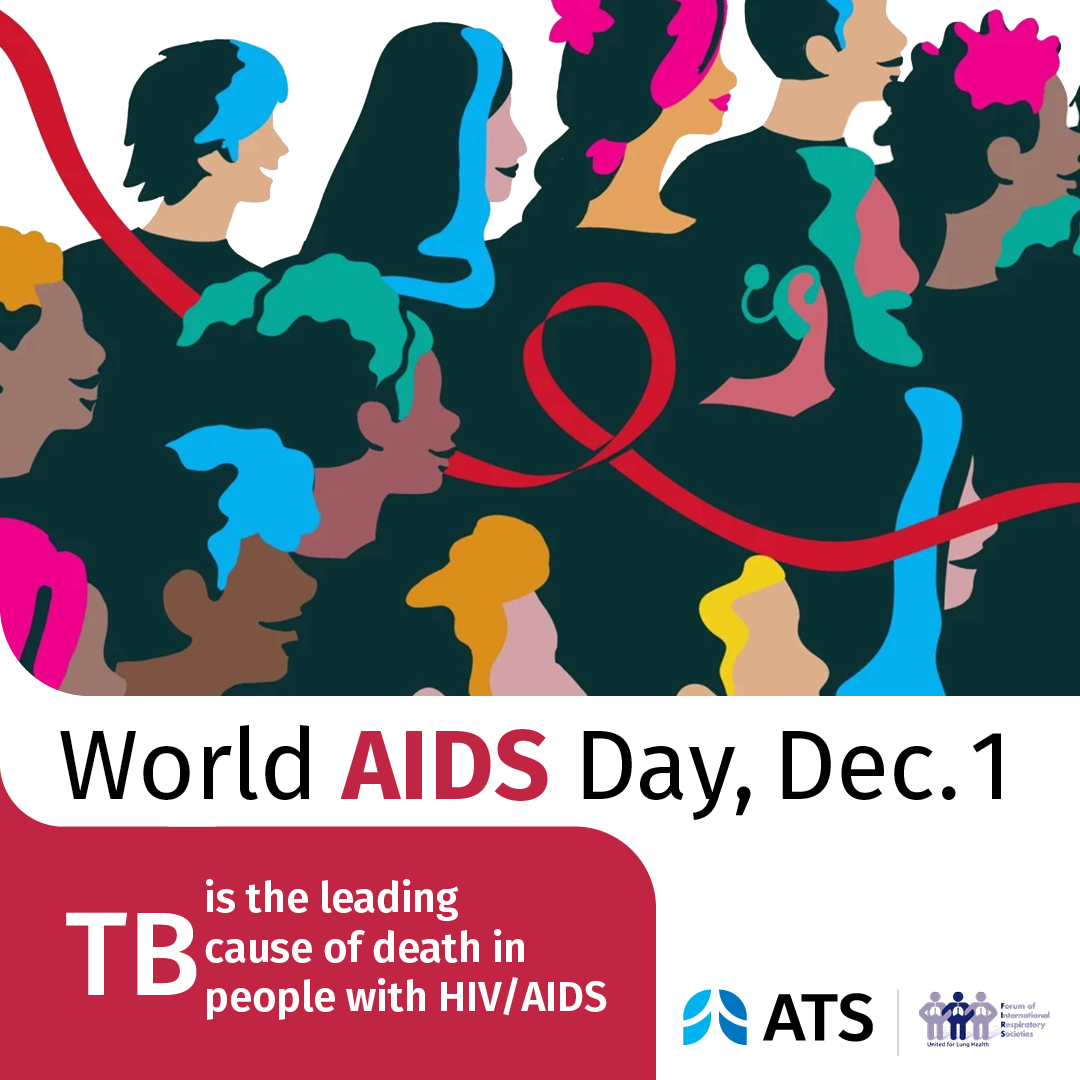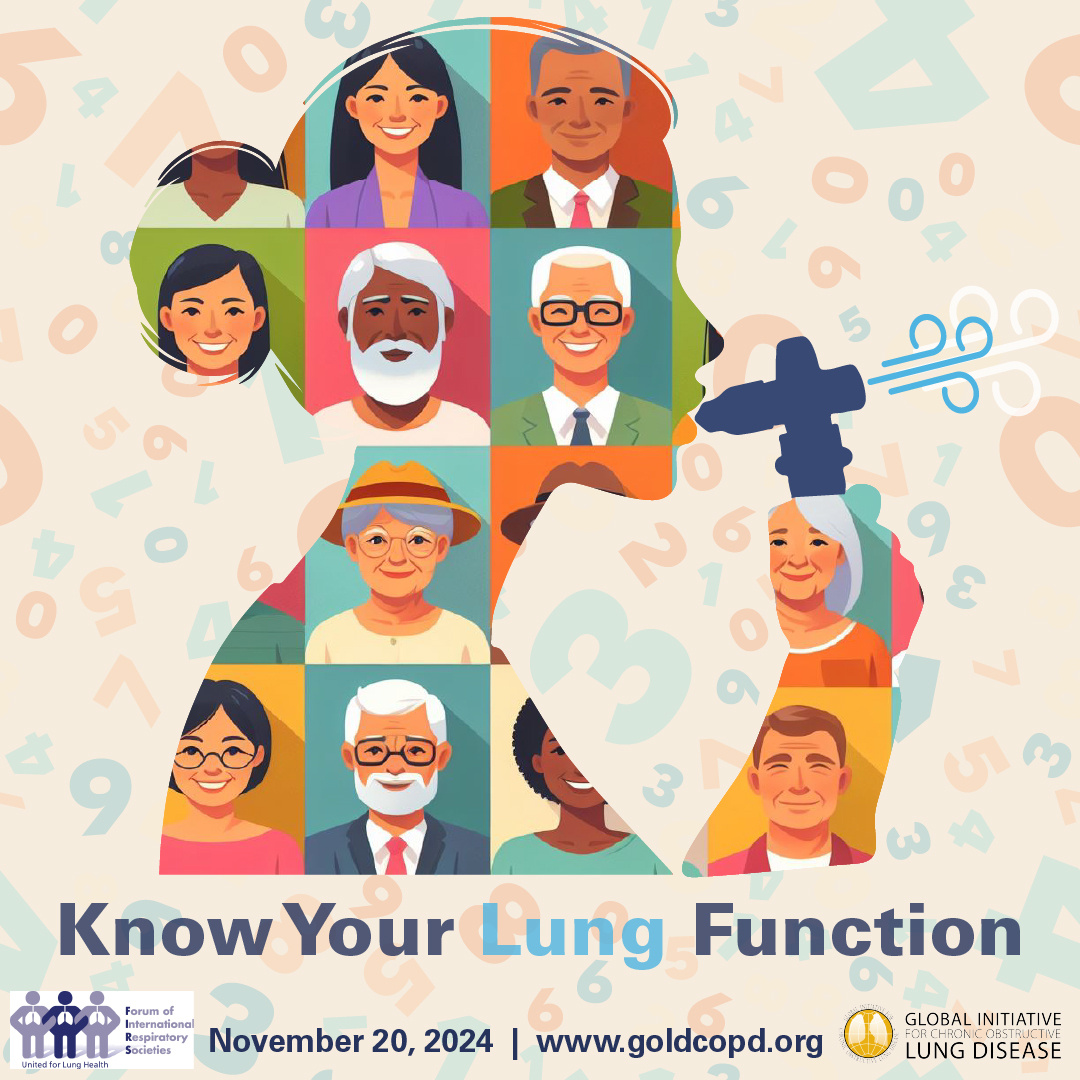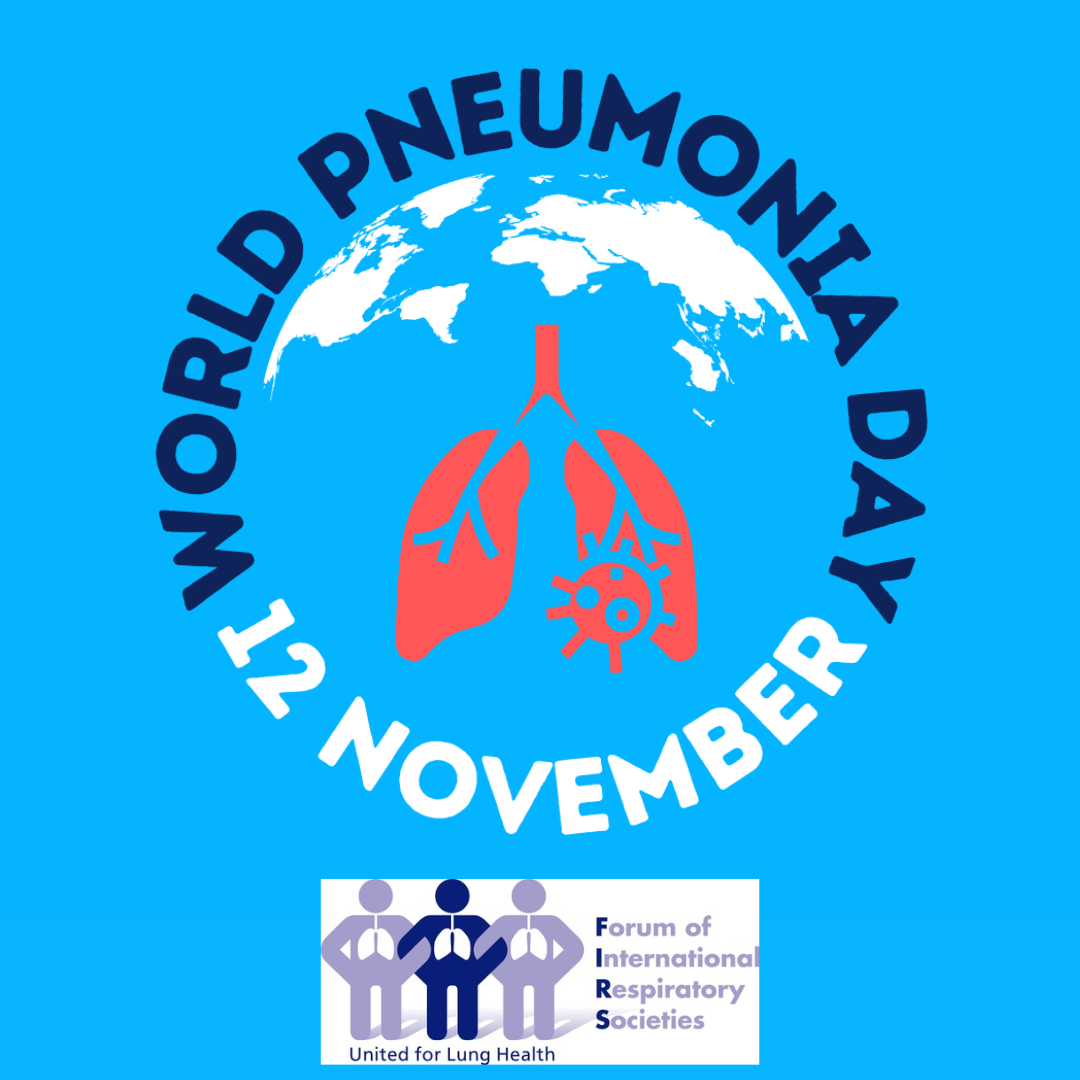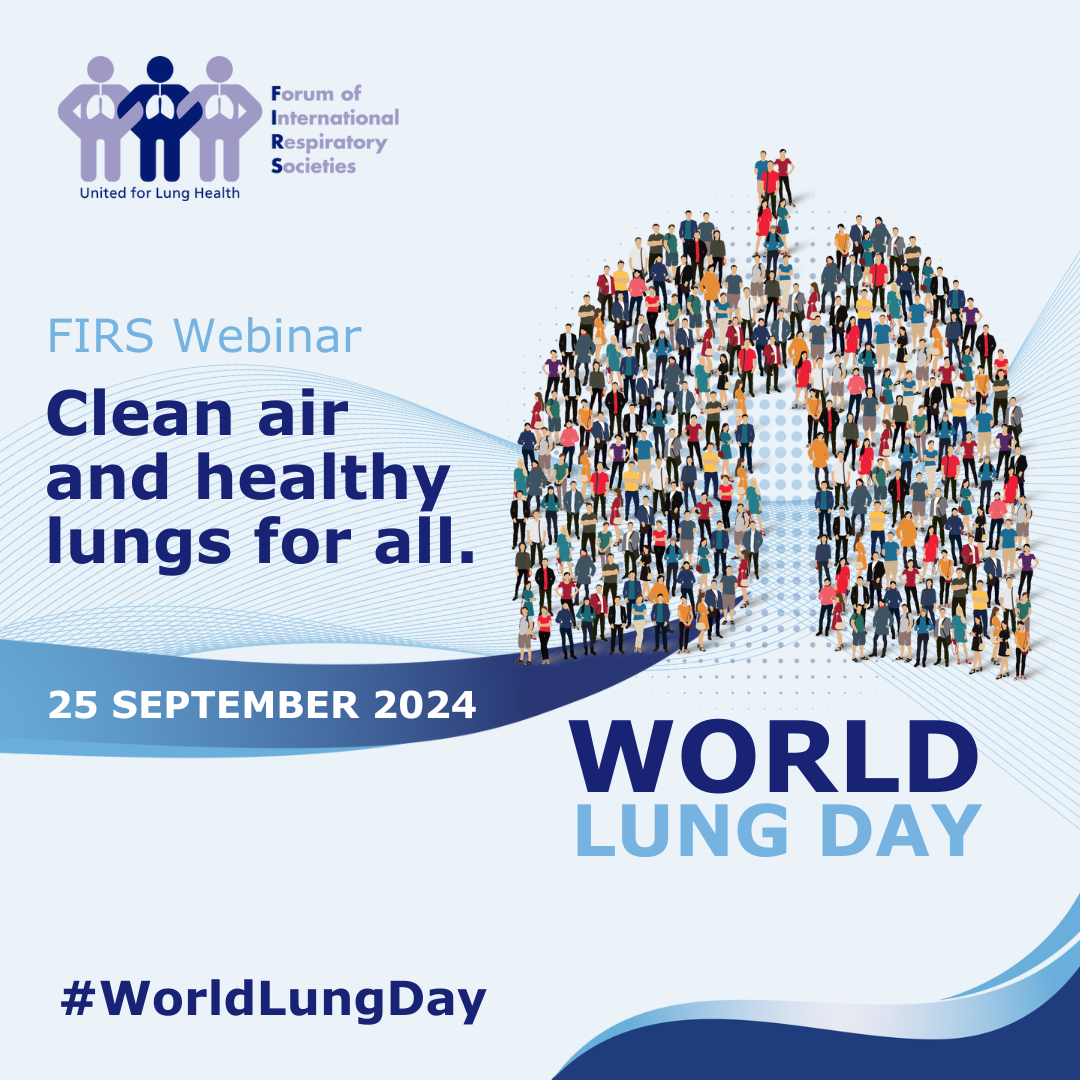Global efforts must be strengthened to end the preventable burden of pneumonia: The Forum of International Respiratory Societies
12 November 2021
On World Pneumonia Day, 12 November, the Forum of International Respiratory Societies (FIRS) calls for urgent and expedited progress to end the preventable burden of pneumonia.
Pneumonia is the single biggest infectious killer of adults and children – claiming the lives of 2.5 million in 2019, including 672,000 children. Boosting efforts to fight pneumonia could avert nearly nine million child deaths from pneumonia and other major diseases by 2030.[1]
Most pneumonia deaths occur in low- and middle-income countries, and many are preventable. Exposure to indoor or outdoor air pollution, poor nutrition and lack of vaccination remain major modifiable risk factors for childhood pneumonia. With health facilities struggling with COVID-19, many do not have an adequate supply of oxygen and only 1 in 5 children in low-income countries can access oxygen when they need it [2]. On this World Pneumonia Day, FIRS is asking governments to urgently step-up efforts to strengthen prevention and provide affordable medicines and oxygen to these communities.
The COVID-19 pandemic, with almost 241 million cases globally and 4.92 million deaths to date, has highlighted the importance of pneumonia. Furthermore, it has underscored the disproportionate burden of pneumonia, in low- and middle-income countries and particularly in marginalized communities. Exposed to high levels of air pollution and with poor access to vaccinations and affordable medicines and oxygen therapy, these vulnerable populations carry a huge burden of illness and death.
To end the preventable burden of pneumonia we must work together to:
- Raise awareness about pneumonia, the leading killer of young children.
- Strengthen, accelerate and sustain interventions to prevent and treat pneumonia.
- Focus on equitable access to, and delivery of, comprehensive pneumonia prevention and control programs.
- Design strategies to reach vulnerable populations to improve their access to available interventions.
FIRS calls on governments to:
- Improve equitable and sustained access to effective pneumonia prevention and control interventions.
- Strengthen health systems that promptly and effectively deliver strategies to reduce pneumonia deaths, including provision of effective antibiotics and oxygen delivery systems.
- Increase support for strategies to prevent pneumonia including immunisation with pneumococcal conjugate vaccine and COVID-19 vaccines, reducing exposure to tobacco and air pollution, and increasing access to safe drinking water and sanitation.
- Support research on innovative diagnostic, prevention and treatment strategies. https://www.clintonhealthaccess.org/severe-pneumonia-leaves-4-2m-children-desperate-for-oxygen-each-year
Together, we can end preventable deaths from pneumonia.
Media contact Fiona Salter This email address is being protected from spambots. You need JavaScript enabled to view it. .
[1] Modelling by Johns Hopkins University, reported by Save the Children, shows that scaling up pneumonia treatment and prevention services can save the lives of 3.2 million children under the age of five. It would also create ‘a ripple effect’ that would prevent 5.7 million extra child deaths from other major childhood diseases at the same time.
[2] https://www.clintonhealthaccess.org/severe-pneumonia-leaves-4-2m-children-desperate-for-oxygen-each-year
About the Forum of International Respiratory Societies (FIRS)
The Forum of International Respiratory Societies (FIRS) is an organisation comprised of the world's leading international respiratory societies working together to improve lung health globally: American College of Chest Physicians (CHEST), American Thoracic Society (ATS), Asian Pacific Society of Respirology (APSR), Asociación Latino Americana De Tórax (ALAT), European Respiratory Society (ERS), International Union Against Tuberculosis and Lung Diseases (The Union), Pan African Thoracic Society (PATS), Global Initiative for Asthma (GINA), and the Global Initiative for Chronic Obstructive Lung Disease (GOLD).
The goal of FIRS is to unify and enhance efforts to improve lung health through the combined work of its more than 70,000 members globally.
